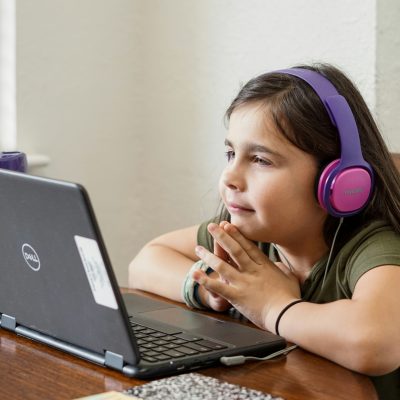Virtual learning has revolutionized the way education is imparted in today’s digital age. It offers a unique approach to the traditional classroom setting, allowing learners to access a wealth of knowledge and resources from the comfort of their own homes. In this article, we delve into the definition of virtual learning, examine its benefits and challenges, explore ways to enhance the learning experience, and analyze future trends in virtual education, including the integration of learning management systems.
Contents
- 1 What is virtual learning and how does it work?
- 2 Benefits of virtual school for students
- 3 Challenges and disadvantages of virtual education
- 4 Enhancing the virtual learning experience
- 5 Future trends in virtual education
- 6 Q: What are the different types of virtual learning?
- 7 Q: How does virtual school help students?
- 8 Q: What is the significance of digital devices in virtual teaching?
- 9 Q: How does virtual learning benefit students in grades K-12?
- 10 Q: What is the difference between traditional classroom learning and virtual learning?
- 11 Q: How does virtual learning cater to students with different learning preferences?
- 12 Q: What is the role of collaborative learning in virtual education?
What is virtual learning and how does it work?
Virtual learning, also known as online learning, is a method of education where students learn through digital platforms and technologies, facilitating homeschooling and distance learning models. It provides a flexible and interactive way of acquiring knowledge outside the confines of a physical classroom. The virtual learning environment encompasses various online tools and resources that facilitate the teaching and learning process. There are different types of virtual learning programs, including live online classes, asynchronous courses, and synchronous sessions that cater to different learning styles and needs, promoting the concept of individual learning within online school settings.
Benefits of virtual school for students
One of the key advantages of virtual education is the flexibility it offers to learners, encompassing concepts like online school, distance learning, and individual learning plans. Students can access course materials and participate in lessons at their own pace and convenience, making learning more personalized and adaptable to individual needs. Virtual learning helps K-12 students by providing access to quality education regardless of geographical barriers. The integration of digital devices in online learning enhances the learning experience by offering interactive and engaging content that resonates with today’s tech-savvy generation, embodying principles of e-learning.
Challenges and disadvantages of virtual education
Despite its benefits, virtual education presents several challenges. Drawbacks of virtual teaching methods include issues related to student engagement and motivation in a virtual classroom, highlighting the need for dynamic approaches to distance learning. Online courses and virtual learning platforms may face technical glitches and limitations that hinder the learning process. Addressing these challenges requires innovative approaches to enhance the virtual learning experience and ensure effective knowledge transfer in the online environment, potentially through hybrid learning solutions.
Enhancing the virtual learning experience
Improving learner engagement in online courses is crucial for the success of virtual learning programs, employing strategies from e-learning and hybrid learning models. Educators can adopt effective strategies such as interactive activities, multimedia content, and virtual collaborations to keep students motivated and actively involved in the learning process. Utilizing technology to create immersive and interactive learning environments can lead to better outcomes in online education and cater to diverse learning styles and needs, incorporating elements of hybrid learning.
Future trends in virtual education
The evolution of virtual learning programs is paving the way for innovative approaches to digital education. Innovations in digital learning environments are revolutionizing the way students interact with course materials and collaborate with their peers, contributing to the realm of e-learning. The growing impact of virtual schools on traditional education is reshaping the landscape of learning, with virtual environments complementing and sometimes even replacing traditional classroom settings.
Q: What are the different types of virtual learning?
Virtual learning includes online public schools, K12 programs, personalized learning, and flexible learning options, often supported by learning management systems to help students complete courses.
Q: How does virtual school help students?
A: Virtual school helps students by providing flexibility in their learning schedules, allowing personalized learning experiences, and access to a variety of online courses.
Q: What is the significance of digital devices in virtual teaching?
Digital devices enable virtual teaching by facilitating the delivery of learning materials, interactive sessions, and collaborative learning experiences between students and teachers, through the use of learning management systems.
Q: How does virtual learning benefit students in grades K-12?
A: Virtual learning in grades K-12 offers students self-paced learning options, individualized attention from tutors, and the chance to stay on track with their studies.
Q: What is the difference between traditional classroom learning and virtual learning?
A: Virtual learning combines digital tools with traditional teaching methods to offer a more flexible and personalized learning experience compared to the traditional classroom setting.
Q: How does virtual learning cater to students with different learning preferences?
Virtual learning allows students to choose from a variety of online courses, offering them the flexibility to learn at their own pace and in line with their preferred learning style, also enabling a form of individual learning.
Q: What is the role of collaborative learning in virtual education?
A: Collaborative learning in virtual education encourages students to interact with their peers and teachers, fostering a sense of community and enhancing the overall learning experience.













